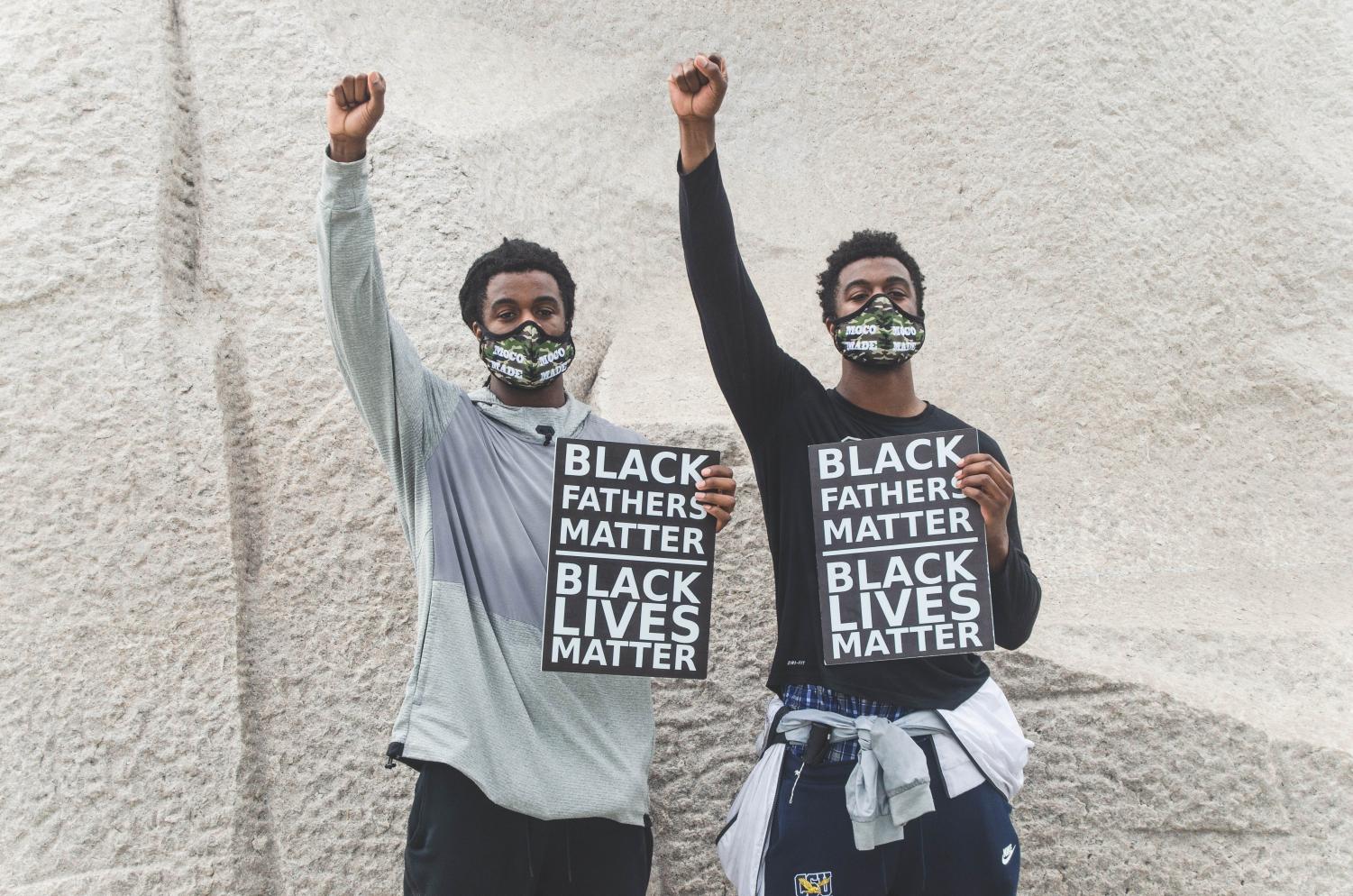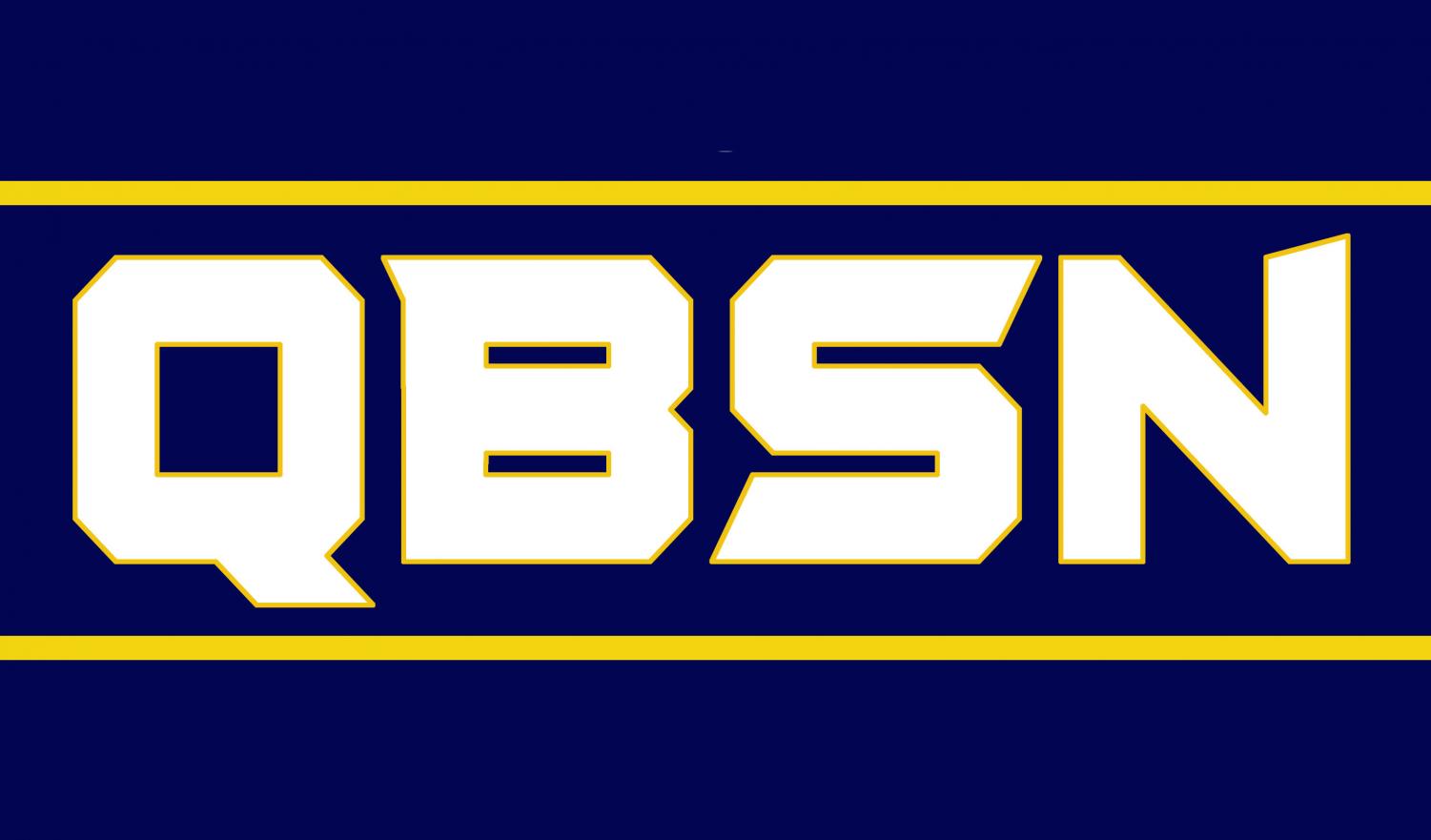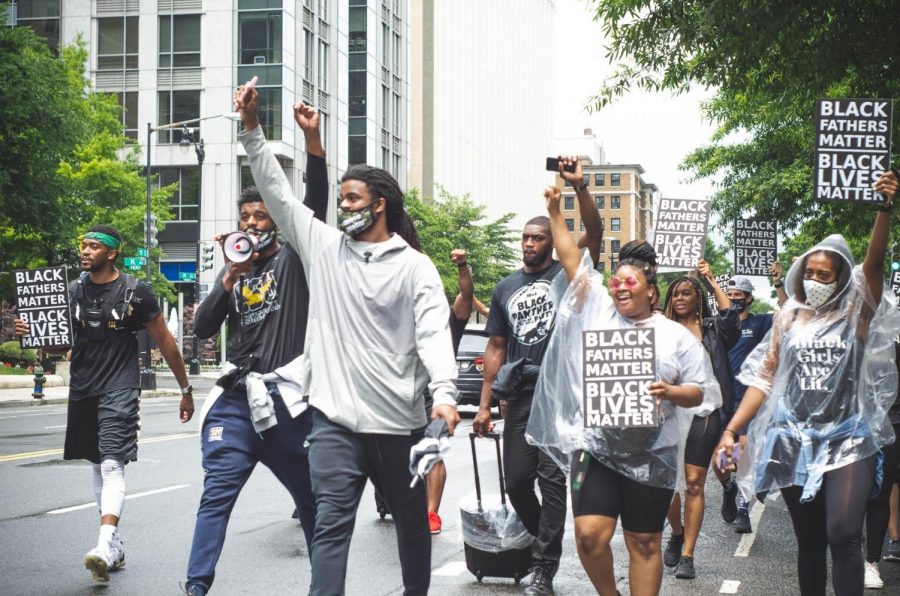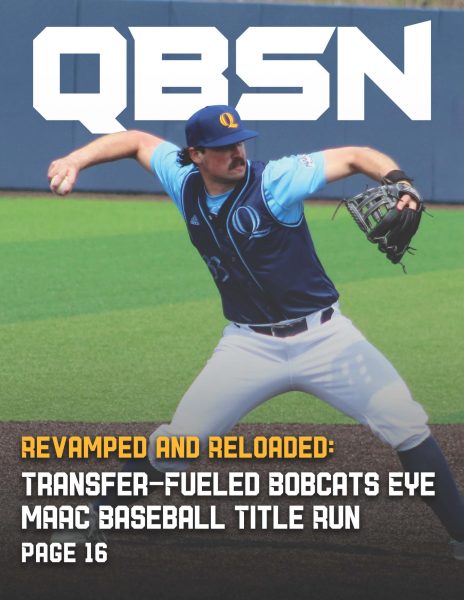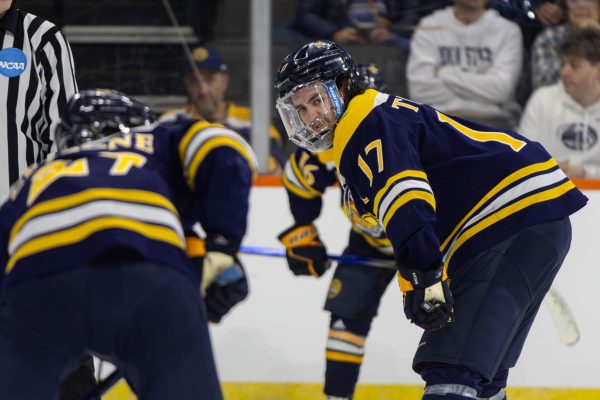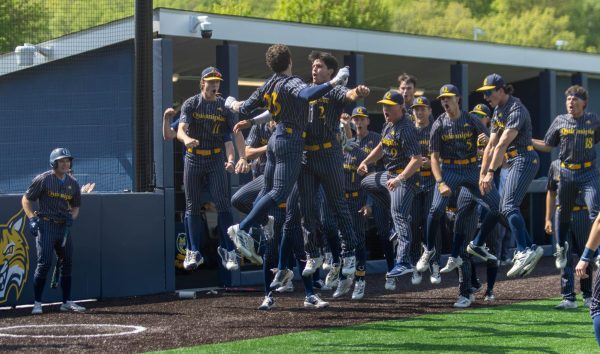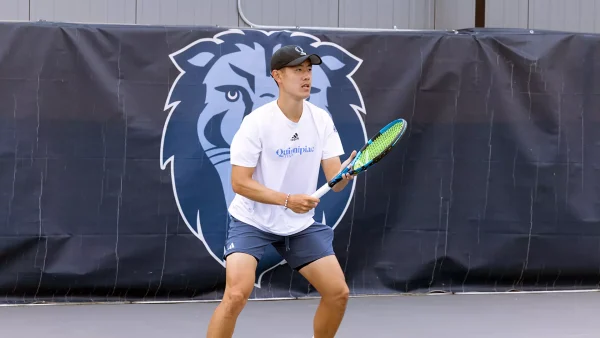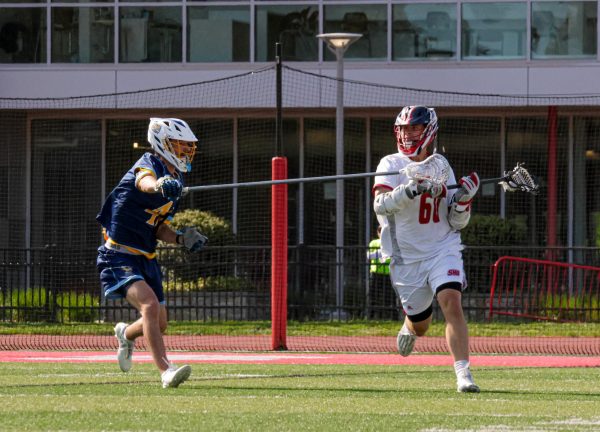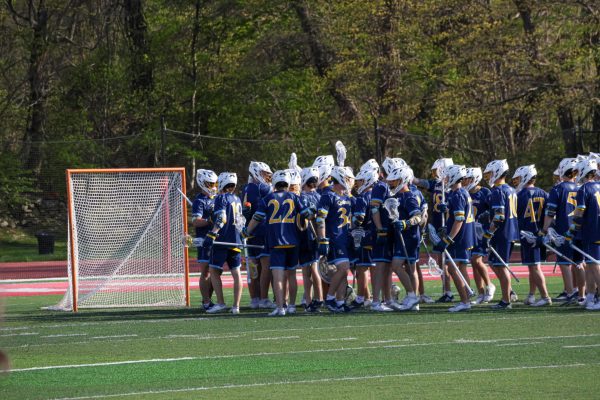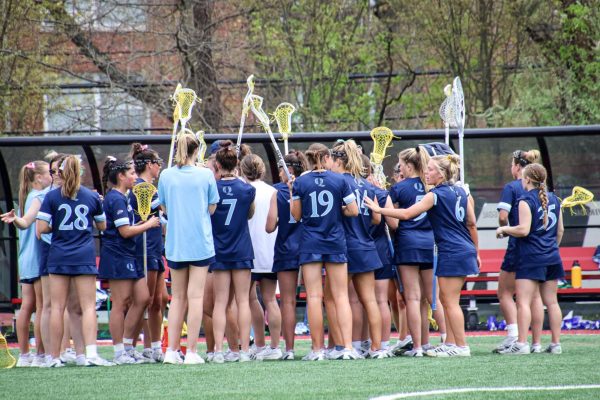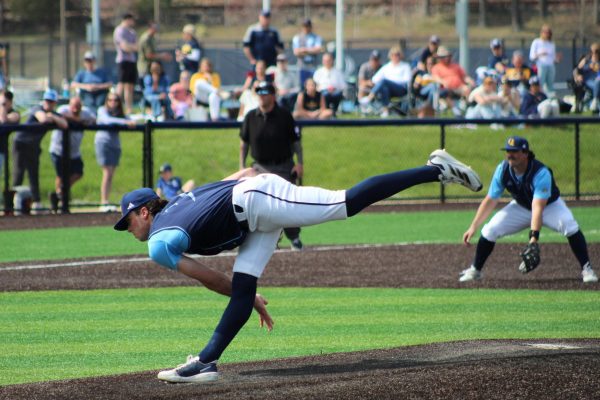The sad reality of being a Student-Athlete at a Predominantly White Institution
July 10, 2020
Racism.
Say the word. Acknowledge the word. Understand the word.
Accept the fact that racism in America is real. It is not a thing of the past, it is not a myth, and it’s not a series of isolated incidents. We live in a time period where people like to sugarcoat the atrocities that are taking place against African Americans in our society and chalk them up to things like “inequality,” “discrimination,” “disparities,” or other words that help soothe the ego of white America.
It’s time that we call a spade a spade, and normalize using the correct terminology to describe the transgressions of this country.
It’s racism – plain and simple.
The sooner we accept this fact, the sooner we can address it.
★ ★ ★
As an African American man who grew up in a predominantly black community, and also as an athlete who has attended both a predominately white institution (PWI) as well as a historically black college/university (HBCU), I have experienced racism in a plethora of ways – some which may seem unconventional, but are nonetheless equally damaging.
Truth be told, at the time of these events I didn’t immediately realize that what I was experiencing was racism. It took a lot of maturity, reflection, and – most importantly – education to understand that what I was experiencing truly was racist. I say these things not to condemn those who took part in this, but to shine a light on the reality for many black students who occupy predominantly white spaces.

As not only a black man, but also a black athlete representing an institution where African Americans are less than five percent of the student population, I often felt like I was living a lie. For the first three years of my playing career, I would walk into our locker room at Quinnipiac University and see almost all black people. Then I would leave the confines of the People’s United Center and walk into a classroom in Tator Hall, where I was almost guaranteed to be the only black person in any one of my classes.
This is where I became an expert in my new job description that I would occupy for the entirety of my undergrad career: spokesperson of the entire African American race.
As many black students at PWIs can attest to, it is a very tiring and very heavy burden to carry when asked to speak on behalf of a population over and over again, either educating your white classmates on the plight of the black community or, in my case, oftentimes explaining why people who grew up in my situation – poor and underprivileged – have to utilize sports to make it into college and succeed in life.
In the mean time, we’d love to hear your thoughts in our poll, that covers one of the major issues facing black students at PWIs.
Do PWIs create an inclusive environment for black/minority students on campus?
— All Facts (@AllFactsMedia) July 9, 2020
Clearly this can be problematic, because my reality, as far as my upbringing, does not represent the entire Black population, nor does it represent the path that the majority of people take to get to college. Because, if you haven’t noticed, there aren’t too many people walking around that are 6’6″ and can dribble a basketball. But since I was the only voice, my reality was the one that was shared, with no difference of opinion able to be offered.
Black students at PWIs are frequently put in this position. It’s very alienating and damaging as a student to feel as though you have to juggle your studies, in my case maintaining my basketball commitment, and carrying the weight of the 47.4 million Black people in America each time you enter a classroom.
Talk about stress.
★ ★ ★
Then you add trying to “look the part” into the equation. As a man who wears my natural hair in dreadlocks, I can’t count the amount of times I was asked “Can I touch your hair?” as if I were an animal in a petting zoo, or “is your hair real?”
This is an even bigger issue for black women at PWIs, who oftentimes are stigmatized for wearing their natural hair. Black women damage their hair by putting perms and relaxers in it in order to fit into the white stereotype of what an “acceptable” style is.
For many of us who walk into classrooms with dreadlocks, afros or braids, our intelligence is assumed to be less the minute we step into our lecture halls. We get the surprised look of approval when we say something intelligent and show that we actually had to apply and be accepted into the university just like they did. Who would’ve thunk it!

The idea of “looking the part” extended past the walls of the classroom, though. I’ve had coaches in my lifetime tell me I couldn’t wear my hair a certain way or tell me that if I wanted to pursue opportunities outside of basketball, I would have to cut my hair. I’m sorry, I didn’t know that having my hair in braids versus a bun would decrease my three point percentage. Or that having my hair in dreads at all would decrease my competency or ability to do my job… said nobody ever!
Making people feel as though their natural state of being is not accepted is one of the main tactics deployed in the proverbial war against black people in America to make us feel less than, to make us feel as though we are less valuable in our own skin.
Pushing the narrative that we must conform to what white America deems acceptable is one of the most damaging things that can happen to a black person, because once you start to believe that your natural self isn’t good enough, you’ve already lost the war.
★ ★ ★
Along with trying to make sure our appearance is on par with society’s expectations, we also have to try to make sure our actions don’t imply that we are suffering from a mid life crisis at the ripe age of 19 or 20 outside of the campus walls.
I couldn’t tell you how many times myself or my teammates heard comments such as “Is everything okay back home?” when things weren’t going well, implying that if things were going wrong it had to be attributed to our broken homes back wherever we came from. Black people already deal with the stereotypes that we all grow up in single parent households without fathers because they’re all in jail, so when we hear things like this from other white people, it reinforces that narrative.
This was my reality. Battling against these things was absolutely not the type of racism my ancestors faced in the Jim Crow era, but the racial undertones and microaggressions were absolutely fatiguing and damaging to the mental state of a student trying to pursue their education.
We need to understand that this type of racism affects you in a completely different way than the overt racism of the past. It diminishes your sense of self worth, perpetuates stereotypes that contribute to the devaluing of the black body, and it solidifies the foundations of white privilege in the sense that white students get to exist on campus without having to carry these burdens with them everywhere they go.
★ ★ ★
There is no better time than the present to address these issues, but it’s going to take a lot more than just a social media movement and a few protests. We first must begin with acknowledging the presence of the issue and accepting that it does, in fact, exist. We can’t find a cure if we don’t first come to terms with the fact that there is a disease present: the disease of racism.
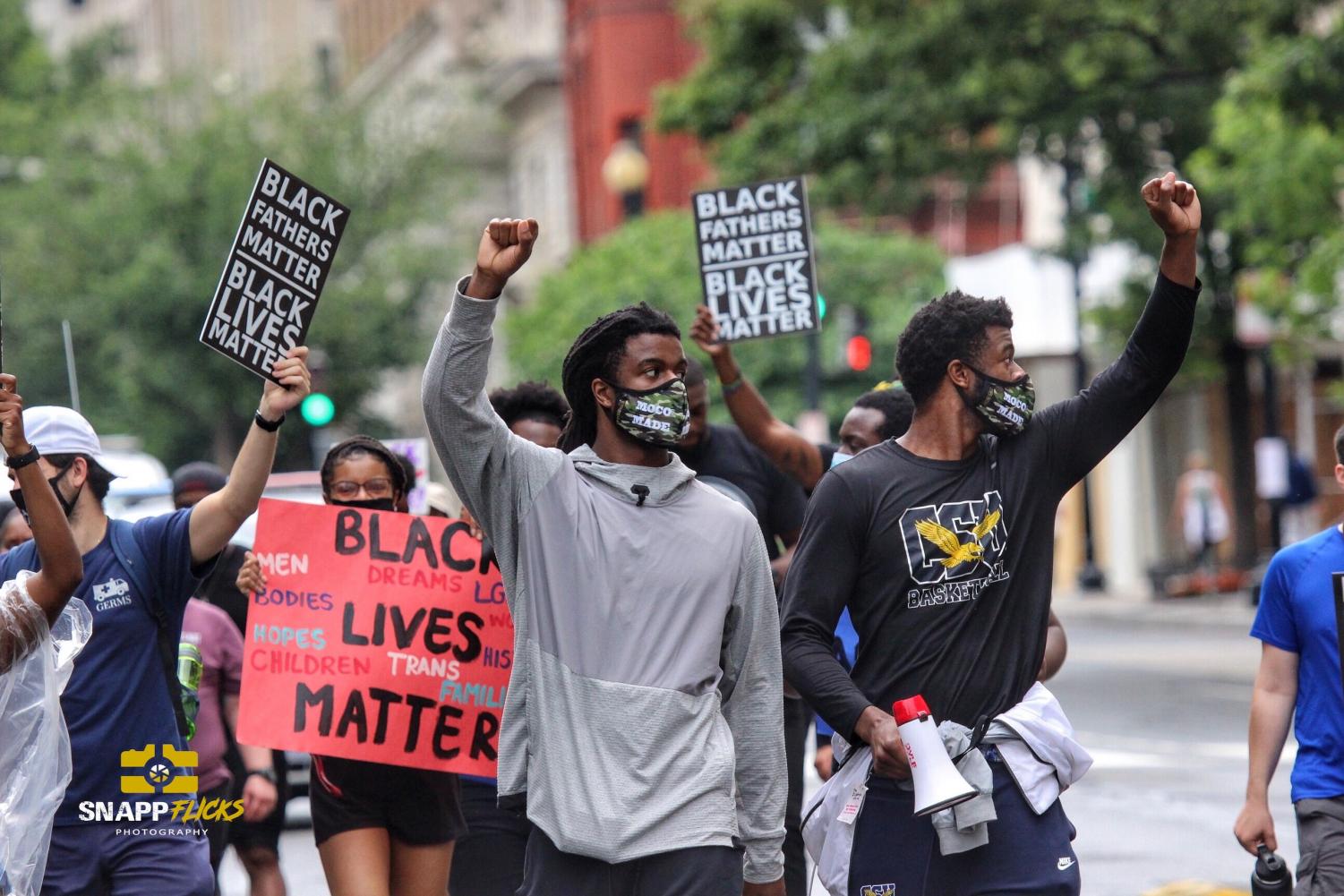
Next, we must educate. White people have to educate themselves on the ways in which they participate, perpetuate, and promote the systems of oppression that exist in America. And not just in the ways mentioned in this article, because trust me – there’s many more instances that didn’t make the cut simply because I didn’t want this to be a laundry list of grievances, but rather an opportunity to learn of some of the unconventional ways that racism affects the Black community.
Note how I said white people have to educate THEMSELVES. It is not the job of the Black community to educate white people on the ways in which they oppress us. It is OK to ask for help or a place to start, but it is not fair to ask us to carry the burden of dealing with racism and oppression every day and then add the role and responsibility of teaching on to that.
We are tired.

But the good news is that Google is always a resource, and the best part is that it’s free! Use it! Here’s some advice: start with a simple search of “How to be anti-racist.”
Lastly, I will say this. As an athlete, we need our coaches, teammates, administration, and support staff to be on our side. We need allies. We cannot continue to fight this fight alone. We cannot continue to say “Family” after every huddle, and call our teammates our brothers and sisters, then leave our family to fight this fight alone.
If your point guard dives on a loose ball, we expect the other four players on the court to run over and lend a hand to pick them up off the hardwood. Well, in this game called life, Black people are down on the ground, as we have been for a long time, waiting for our teammates in life to come pick us up.
The time is now. Come and lend a hand in this fight, because without it, your brothers and sisters will remain on the ground, and they may never get up.
Now, what kind of family is that?
★ ★ ★
Andrew Robinson is a former Quinnipiac Men’s Basketball player and student journalist who graduated in 2019. You can see more of Andrew and his brother Aaron’s work on their website, www.allfactsmedia.wixsite.com/allfacts , as well as on Twitter and Instagram @AllFactsMedia.
